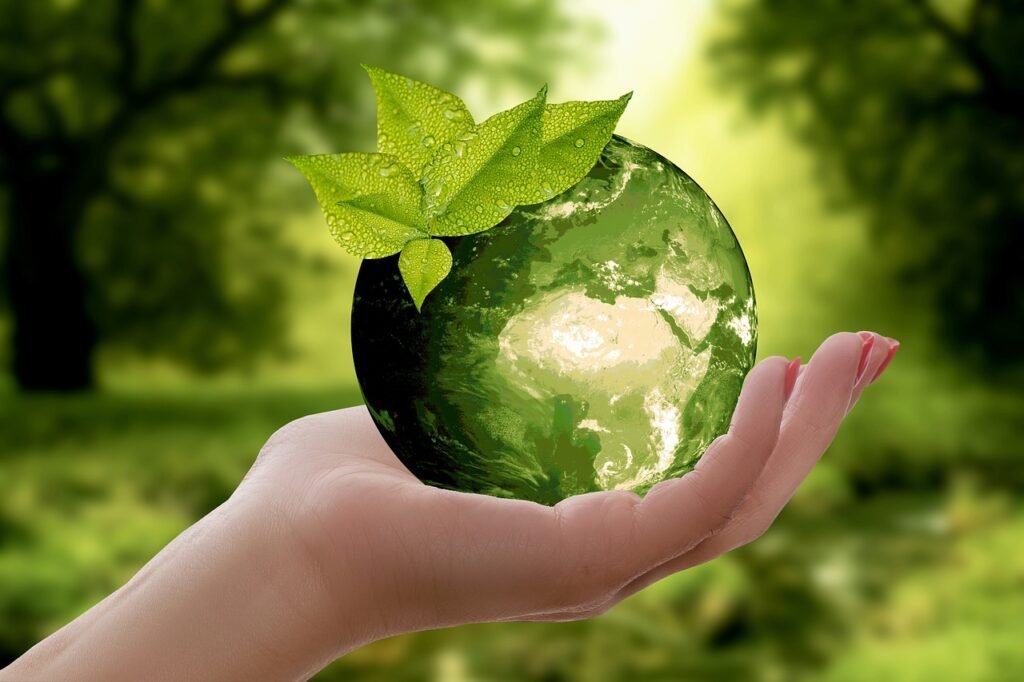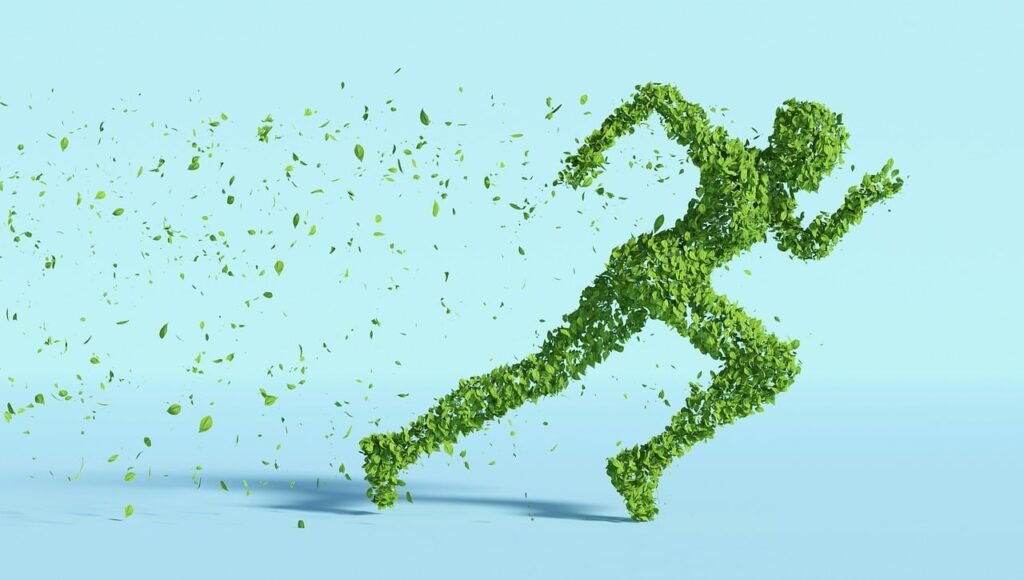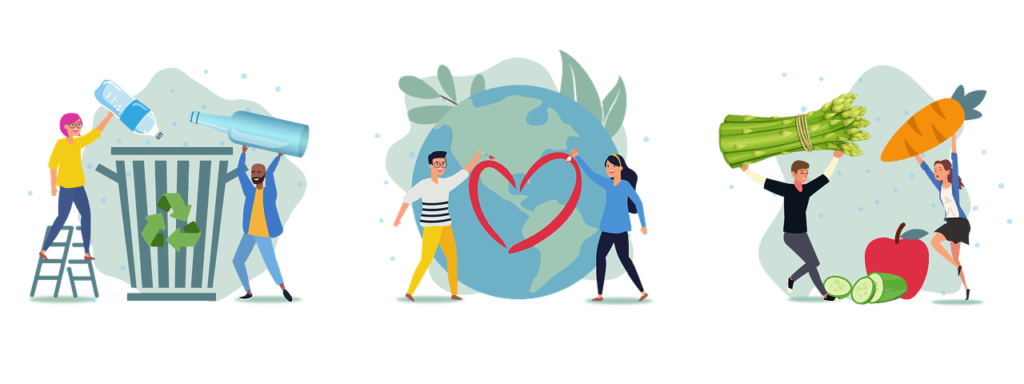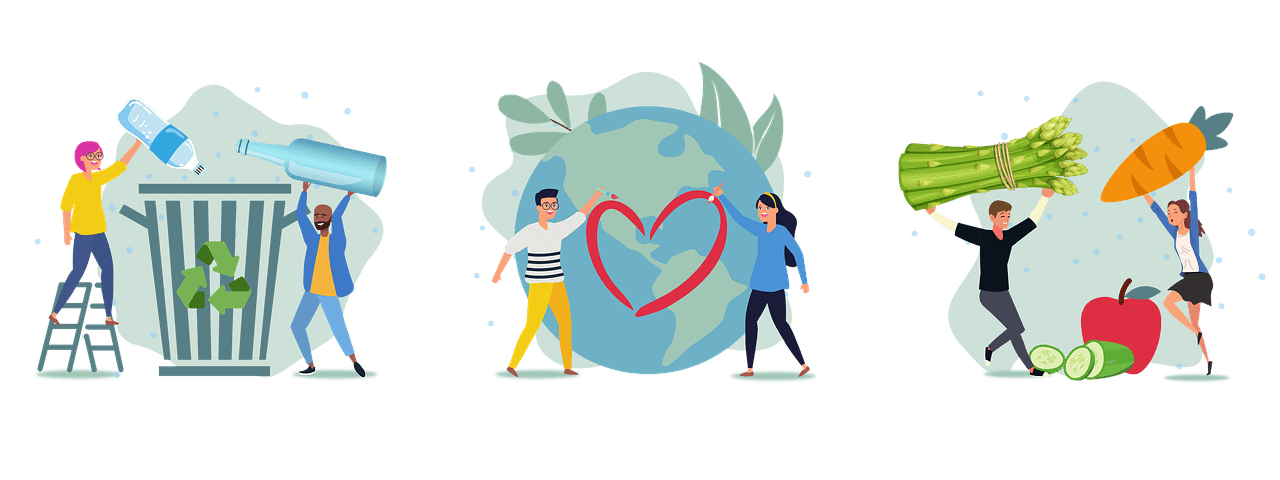Hey there! Have you ever wondered how you can contribute to reducing your carbon footprint? Well, here’s a simple yet powerful solution for you: recycled plastic boxes. These environmentally friendly boxes have become an increasingly popular choice for packaging and storage, thanks to their numerous benefits. Not only do they help reduce the consumption of virgin materials, but they also minimize waste and conserve energy. In this article, we’ll explore the incredible potential of recycled plastic boxes in reducing our carbon footprint and how they can make a positive impact on our planet. So let’s dive right in and discover the eco-friendly world of recycled plastic boxes!

This image is property of pixabay.com.
Benefits of Using Recycled Plastic Boxes
Using recycled plastic boxes comes with numerous benefits that contribute to a more sustainable and environmentally-friendly future. Here are some of the key advantages of incorporating recycled plastic boxes into your lifestyle:
Reduces carbon emissions
By utilizing recycled plastic boxes, you can significantly reduce carbon emissions. The production of virgin plastic contributes to greenhouse gas emissions, but recycling plastic reduces the need for new plastic production, subsequently lowering carbon emissions.
Conserves natural resources
Recycled plastic boxes help conserve precious natural resources. Instead of relying solely on the production of virgin plastic, using recycled plastic decreases the demand for raw materials such as petroleum. By diverting plastic waste from landfills and recycling it into durable boxes, we can minimize the consumption of natural resources.
Reduces landfill waste
Plastic waste poses a significant threat to our environment when it ends up in the landfill. By using recycled plastic boxes, we can prevent plastic waste from taking up space in landfills and contribute to their overflowing. By extending the lifespan of plastics through recycling, we simultaneously reduce the amount of waste that requires disposal.
Saves energy in production
The production of plastic requires a tremendous amount of energy. However, by utilizing recycled plastic boxes, we can save energy. When compared to the energy-intensive processes involved in producing virgin plastic, recycling plastic consumes less energy, making it a more energy-efficient alternative.
Minimizes pollution from plastic manufacturing
Plastic manufacturing often results in pollution that harms both the environment and human health. By choosing recycled plastic boxes, we can minimize pollution. The utilization of recycled plastics reduces air and water pollution by decreasing the release of toxic chemicals, promoting sustainable manufacturing practices, and fostering a cleaner and healthier environment.
Types of Recycled Plastic Boxes
Recycled plastic boxes come in various forms, each with its unique benefits and features. Here are the three main types of recycled plastic boxes available:
Post-consumer recycled plastic boxes
Post-consumer recycled plastic boxes are made from plastic waste that consumers have used and then recycled. This type of recycled plastic box is formed from materials such as discarded water bottles, food containers, and packaging. By utilizing post-consumer recycled plastic boxes, you contribute to the circular economy by giving new life to plastic waste.
Post-industrial recycled plastic boxes
Post-industrial recycled plastic boxes are derived from plastic waste generated during the manufacturing process. These boxes are made from materials such as excess plastic from factories or discarded items from production lines. By using post-industrial recycled plastic boxes, you support the effort to reduce waste in manufacturing and maximize the use of available resources.
Bio-plastic boxes
Bio-plastic boxes are a sustainable alternative to traditional plastic boxes. They are made from renewable resources such as cornstarch, sugarcane, or algae. Bio-plastics have the advantage of being biodegradable and compostable, reducing their impact on the environment even further. By choosing bio-plastic boxes, you can minimize your carbon footprint and promote the use of renewable materials.

This image is property of pixabay.com.
Reducing Carbon Emissions
Utilizing recycled plastic boxes plays a crucial role in reducing carbon emissions. Here are a few ways in which recycled plastic boxes contribute to minimizing carbon footprint:
Lowering transportation emissions
Recycling plastic reduces the need for new plastic production, which in turn reduces the transportation emissions associated with the delivery of raw materials to manufacturing facilities. By using recycled plastic boxes, you limit the transportation emissions and help combat climate change.
Reducing greenhouse gas emissions from production
The production of virgin plastic releases greenhouse gases that contribute to global warming. By opting for recycled plastic boxes, we prevent the emissions of greenhouse gases involved in the manufacturing of new plastic. Every time we choose recycled plastic products, we actively contribute to reducing the greenhouse gas emissions that exacerbate climate change.
Decreasing emissions from waste management
When plastic waste ends up in landfills, it decomposes and releases harmful greenhouse gases, including methane. However, by properly recycling plastic and utilizing recycled plastic boxes, we can prevent plastic from reaching landfills, reducing the emissions of these potent greenhouse gases. By embracing the use of recycled plastic boxes, we make a positive impact on our environment while tackling climate change.
Conserving Natural Resources
By utilizing recycled plastic boxes, we contribute to the conservation of natural resources. Here are some ways in which recycled plastic boxes support the preservation of our planet’s resources:
Reducing reliance on virgin plastic
The production of virgin plastic relies heavily on the consumption of non-renewable resources such as petroleum and natural gas. By choosing recycled plastic boxes, we decrease our reliance on virgin plastic and reduce the extraction of these valuable natural resources. This helps us preserve them for future generations.
Preserving fossil fuels
Virgin plastic production requires the use of fossil fuels, which are non-renewable resources. By opting for recycled plastic boxes, we minimize the need for new plastic production and therefore conserve fossil fuels. Preserving these finite resources is crucial for long-term sustainability and energy independence.
Protecting ecosystems
The extraction of raw materials for virgin plastic production often involves large-scale mining or drilling, leading to significant environmental disturbances and habitat destruction. By opting for recycled plastic boxes, we reduce the demand for these destructive practices, thereby protecting vulnerable ecosystems and the biodiversity they harbor.

This image is property of pixabay.com.
Reducing Landfill Waste
Recycled plastic boxes play a pivotal role in reducing the amount of waste that ends up in landfills. Here’s how using recycled plastic boxes helps combat the issue of landfill waste:
Preventing plastic waste from ending up in landfills
Plastic waste is a significant contributor to landfills, taking up valuable space and posing serious environmental threats. By utilizing recycled plastic boxes, we can divert plastic waste from landfills and give it new life. This reduces the amount of plastic filling up landfills, ultimately alleviating the strain on these already overwhelmed facilities.
Extending the lifespan of plastics
Recycling plastic allows us to extend the lifespan of this versatile material. Instead of using plastic products just once and discarding them, we can reuse the plastic waste by transforming it into durable and functional plastic boxes. By actively participating in the recycling process, we can significantly extend the lifespan of plastics and reduce the need for new production.
Reducing the amount of waste needing disposal
By incorporating recycled plastic boxes into our daily lives, we contribute to reducing the overall amount of waste that requires disposal. This, in turn, decreases the strain on waste management systems and helps create a more sustainable and efficient waste management infrastructure. Through the responsible use of recycled plastic boxes, we can actively work towards a waste-free future.
Saving Energy in Production
The utilization of recycled plastic boxes leads to energy savings throughout the production process. Here’s how using recycled plastic boxes helps save energy:
Lowering energy consumption in manufacturing
The production of virgin plastic requires substantial amounts of energy, contributing to higher greenhouse gas emissions. However, by choosing recycled plastic boxes, we save energy. Recycling plastic consumes less energy compared to the energy-intensive processes involved in creating virgin plastic, resulting in reduced environmental impact and savings in energy consumption.
Reducing the need for raw material extraction
To produce virgin plastic, raw materials like petroleum or natural gas must be extracted through energy-intensive processes. By opting for recycled plastic boxes, we decrease the demand for new raw materials, reducing the need for extraction and subsequently saving vast amounts of energy associated with these resource-intensive activities.
Diminishing energy-intensive processes
The production of virgin plastic involves several energy-intensive processes, including refining, polymerization, and molding. Conversely, recycling plastic requires less energy, as it skips some of these energy-intensive steps. By using recycled plastic boxes, we contribute to overall energy savings and promote a more sustainable and resource-efficient manufacturing industry.
Minimizing Pollution from Plastic Manufacturing
Plastic manufacturing often results in pollution that negatively impacts the environment and human health. By choosing recycled plastic boxes, we can help minimize pollution. Here’s how:
Reducing air and water pollution
The manufacturing of virgin plastic releases pollutants into the air and water, contributing to environmental degradation. However, by incorporating recycled plastic boxes, we reduce pollution levels. Recycling plastic mitigates the emission of harmful pollutants, leading to cleaner air and water, and a healthier environment for all.
Lowering the release of toxic chemicals
Plastic manufacturing involves the use of chemicals that can be toxic and harmful to human health and ecosystems. By opting for recycled plastic boxes, we minimize the release of these toxic chemicals into the environment. By reducing our reliance on virgin plastic production, we actively promote safer manufacturing practices and reduce the associated negative impacts.
Promoting sustainable manufacturing practices
By utilizing recycled plastic boxes, we support sustainable manufacturing practices. The incorporation of recycled plastic encourages manufacturers to adopt cleaner and more efficient production methods, reducing pollution caused by plastic manufacturing. By promoting sustainable practices, we contribute to the overall improvement of manufacturing processes, benefiting both the environment and human health.
Challenges and Solutions
While the use of recycled plastic boxes offers numerous benefits, there are some challenges to consider. However, through collaborative efforts, these challenges can be overcome. Here are some challenges and potential solutions:
Availability and accessibility of recycled plastic boxes
One challenge is the availability and accessibility of recycled plastic boxes. To address this, it is essential to encourage the production and distribution of recycled plastic boxes. Businesses and consumers can support this by actively seeking out and purchasing products made from recycled plastic, thereby creating and increasing demand for these sustainable alternatives.
Education and awareness about recycling
Another challenge is the lack of education and awareness about the importance of recycling and the impact it has on the environment. Increasing education and awareness through public campaigns, school programs, and community initiatives can help educate individuals about the significance of recycling plastic and the benefits of using recycled plastic boxes.
Policy and government support
Government policies and regulations play a crucial role in shaping sustainable practices and encouraging the use of recycled materials. By implementing policies that support and incentivize the production and use of recycled plastic boxes, governments can contribute to the growth of a circular economy and enhance the accessibility of sustainable alternatives.
Collaboration with businesses and consumers
Collaboration between businesses and consumers is key to the successful implementation of recycling initiatives. Businesses must prioritize the use of recycled plastic boxes and actively communicate the benefits to consumers. Likewise, consumers should actively seek out and support businesses that prioritize sustainability and opt for products packaged in recycled plastic boxes.
Design and durability challenges
Design and durability challenges can hinder the widespread adoption of recycled plastic boxes. To address this, manufacturers can focus on improving the design and functionality of recycled plastic boxes, making them more appealing to consumers and ensuring their durability and longevity. By investing in research and development, manufacturers can overcome these challenges and provide sustainable packaging solutions.
Successful Implementation Examples
Several successful initiatives have demonstrated the positive impact of utilizing recycled plastic boxes. Here are a few examples:
Corporate sustainability initiatives
Many companies have implemented sustainability initiatives that include the use of recycled plastic boxes. By incorporating these boxes into their packaging and supply chain, businesses can minimize waste, reduce carbon emissions, and promote a more circular economy.
Waste management programs
Communities around the world have implemented waste management programs that actively encourage recycling and the use of recycled plastic boxes. These programs play a vital role in diverting plastic waste from landfills and promoting sustainable waste management practices.
Community recycling efforts
Community-led recycling efforts have proven effective in raising awareness and engaging individuals in sustainable practices. By establishing recycling centers and organizing collection events, communities can actively participate in the recycling process and promote the use of recycled plastic boxes.
Innovative product designs
Manufacturers have embraced innovative product designs, showcasing the versatility of recycled plastic boxes. These designs not only demonstrate the functionality and durability of recycled plastic boxes but also highlight their aesthetic appeal, making them an attractive and sustainable choice for consumers.
Conclusion
The use of recycled plastic boxes presents numerous benefits for both individuals and the environment. From reducing carbon emissions to conserving natural resources and minimizing pollution, the advantages of utilizing recycled plastic boxes are vast. By actively promoting and incorporating these sustainable alternatives into our lives, we can make a significant contribution to reducing our carbon footprint and preserving the planet for future generations. Choosing recycled plastic boxes is not only a responsible choice but also an essential step towards creating a more sustainable future. Let’s embrace the importance of sustainable packaging choices and work together to build a greener and healthier world.
